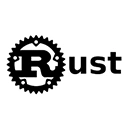The Cargo.toml file is a crucial component of Rust projects managed by Cargo, the Rust package manager and build system. This file serves multiple purposes, including defining project metadata, managing dependencies, and configuring build settings. In this guide, we will explore the various sections of the Cargo.toml file and their significance.
1. Project Metadata
The Cargo.toml file contains metadata about your Rust project, which helps Cargo understand the project structure and its requirements. The metadata includes the project name, version, authors, and edition.
Example of Project Metadata
[package]
name = "my_project"
version = "0.1.0"
edition = "2021"
authors = ["Your Name <you@example.com>"]
description = "A brief description of my project."
</you@example.com>Explanation of the Metadata Section
name: The name of the package. This is used when publishing the crate to crates.io.version: The current version of the package, following semantic versioning.edition: The Rust edition that the package is using (e.g., "2015", "2018", "2021"). This affects the language features available.authors: A list of authors of the package, typically including names and email addresses.description: A short description of what the project does.
2. Managing Dependencies
One of the primary purposes of the Cargo.toml file is to manage dependencies. You can specify external crates that your project relies on, along with their versions. Cargo will automatically download and compile these dependencies when you build your project.
Example of Managing Dependencies
[dependencies]
serde = "1.0" # A popular serialization library
serde_json = "1.0" # A library for working with JSON
Explanation of the Dependencies Section
[dependencies]: This section lists all the external crates that your project depends on.- Each dependency is specified with its name and version. You can use semantic versioning to define version constraints (e.g., "1.0", ">=1.0, <2.0").
- When you run
cargo buildorcargo run, Cargo will automatically fetch and compile these dependencies.
3. Development Dependencies
In addition to regular dependencies, you can specify development dependencies that are only needed during development and testing. These dependencies are listed under the [dev-dependencies] section.
Example of Development Dependencies
[dev-dependencies]
rand = "0.8" # A library for generating random numbers, used only in tests
Explanation of the Development Dependencies Section
[dev-dependencies]: This section lists dependencies that are only required for development and testing purposes.- These dependencies are not included when the package is built for release, helping to keep the final binary smaller.
4. Configuration Options
The Cargo.toml file can also include configuration options for various aspects of the build process, such as specifying features, build profiles, and more.
Example of Configuration Options
[features]
default = ["serde"]
custom_feature = [] # A custom feature that can be enabled
Explanation of the Configuration Options Section
[features]: This section allows you to define optional features for your package. Features can enable or disable certain functionality based on user preferences.- The
defaultfeature is automatically enabled when the package is used, while custom features can be enabled by users as needed.
5. Conclusion
The Cargo.toml file is essential for managing Rust projects effectively. It provides a structured way to define project metadata, manage dependencies, and configure build settings. By understanding the purpose and structure of the Cargo.toml file, developers can streamline their workflow and ensure that their projects are well-organized and maintainable.

